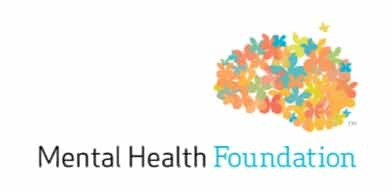Binge eating disorder is an eating disorder. It is when someone has repeated occasions of eating large amounts of food (often very quickly), even when they don’t mean to. This is called a bingeing episode.
After a bingeing episode, you might feel physically ill, ashamed, distressed or guilty.
Binge eating disorder used to be called emotional eating, compulsive overeating or food addiction. Individuals with binge eating disorder may be average or heavier than average weight for their height.
Here are some common symptoms you may experience if you have binge eating disorder:
|
|
|
|
|
|
|
|
The causes of binge eating disorder are unknown. Things like genetics, biological factors, long-term dieting and psychological issues increase your risk.
- Family history. You’re much more likely to have an eating disorder if your parents or siblings have (or had) an eating disorder. This may mean that inherited genes increase the risk of developing an eating disorder.
- Dieting. Many people with binge eating disorder have a history of dieting. Dieting or restricting calories during the day may trigger an urge to binge eat. This can happen if you are feeling down about yourself.
- Psychological issues. Many people who have binge eating disorder feel negative about themselves. Including their accomplishments and skills. Triggers for bingeing can include stress, poor body self-image and the availability of preferred binge foods.
The condition develops over time as a way of dealing with emotional discomfort. Binge eating disorder can cause serious health issues and damage your body. It’s important to get help and find other ways of coping.
Although it’s a serious condition, there’s lots of help available!
Getting Help and Support
If you’re concerned about binge eating disorder, you’re not alone. This is the most common eating disorder that people experience.
Take the first step – talk to someone you like and trust. Like a teacher, relative, counsellor, or friend. If you are not comfortable discussing the full depth of what is going on, that is okay. You can start by just asking some questions or getting more information.
Some other suggestions include:
- Try to find someone who can be your partner in the battle against binge eating — someone you can call on for support instead of bingeing.
- Find healthy ways to nurture yourself by doing something just for fun or to relax, such as yoga, meditation, or simply a walk.
- Consider journaling about your feelings and behaviors. Journaling can make you more aware of your feelings and actions, and how they’re related.
It’s really important to get help as soon as you become concerned about your health. Binge eating disorder can cause long-term damage to your body. Remember, binge eating disorder can happen to anyone and is not your fault.
You could also go and talk to your doctor about your experiences. Binge eating disorder is often associated with feelings of depression. Both conditions may need to be addressed at the same time.
Our partner, EDSNA lists different options for support and treatment and describes options for getting help. Check them out here: Eating Disorder Support Network of Alberta (edsna.ca)
They also offer virtual workshops via Kickstand Connect, which you can learn about here. Sign-up for a free, virtual 1:1 mental health counselling or peer support session in the meantime.
Treatment of Binge Eating Disorder
Treatment will probably start with an assessment. This will determine how much the binge eating disorder is affecting your physical and mental health.
From this point, your treatment may involve a combination of therapies. The therapies are meant to bring awareness to the thoughts and feelings that lead to binging behaviors. This might involve 1:1 talk therapy and/or group therapy.
You will need to focus on eating full and balanced meals at regular intervals. This will help make sure you are sufficiently nourished. Support from a dietician may be required. They can help develop meal plans and provide more information about healthy eating.
You’ll be supported to make sure you’re getting the right amount to eat. You’ll also be supported to explore your relationship with food and eating. This support can also help you learn about what your healthy weight should be. Along with the mental health treatments, you may also be offered medication. Your team may include a psychiatrist with expertise in eating disorders.
Sources:
Treatment – Eating Disorder Support Network of Alberta (edsna.ca)



